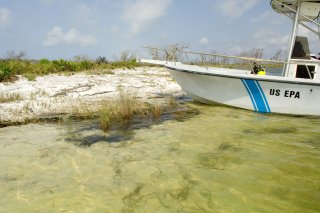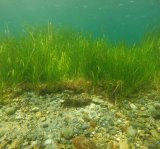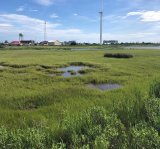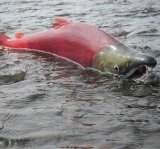Watersheds Research

People rely on natural water resources, including bodies of water and the watersheds that flow into them, for critical social, economic, and ecosystem benefits. Numerous human-caused factors are threatening the quality of natural water resources and their beneficial uses, including nutrient pollution, sedimentation, chemical and microbial contaminants in surface waters, the proliferation of microplastics, habitat alteration, introduction of invasive species, and land-use changes. Furthermore, climate change is threatening water supply and the integrity of marine, coastal, and freshwater ecosystems.
The protection and restoration of aquatic resources requires improved understanding of how human activities affect water quality and quantity and how the structure and function of aquatic ecosystems changes in response to those effects. The science needed to develop integrated water quality and watershed management tools is key to managing water resources, and effectively restoring impaired water bodies.
Research in watersheds builds on EPA’s monitoring, assessment, and mapping of aquatic resources to address existing and future water resource challenges related to climate change, multiple stressors, environmental justice, and equity. These efforts will help to develop solutions to build resilient communities and ecosystems.

Watershed Assessment
Learn about our watershed assessment research to support aquatic resource monitoring and assessment, characterizing aquatic resource responses to cumulative impacts of multiple stressors, and estimating economic benefits of water quality improvements to protect and restore aquatic resources.

Ecosystem and Community Resilience
Learn about our ecosystem and community resilience research, which is focused on improving capabilities to manage existing and future water resource challenges related to climate change, advancing environmental justice and equity, and developing tools to help build resilient ecosystems and communities.

Advanced Ambient Water Quality
Learn about our advanced ambient water quality research, which is focused on developing the science information needed for new or revised ambient water quality criteria recommendations and methods to protect human health and aquatic life from chemical and non-chemical contaminants.
